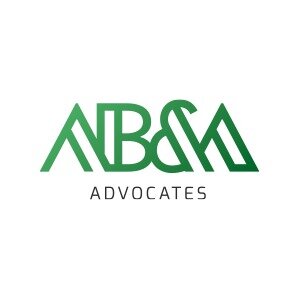Best Work Permit Lawyers in Valletta
Share your needs with us, get contacted by law firms.
Free. Takes 2 min.
List of the best lawyers in Valletta, Malta
About Work Permit Law in Valletta, Malta
Work Permit law in Valletta, Malta is designed to regulate the employment of non-Maltese nationals in the local labor market. The legislation aims to ensure that job opportunities are given first to Maltese and EU/EEA nationals. Nonetheless, work permits are obtainable for non-EU/EEA nationals under certain conditions, often requiring sponsorship from a local employer who can demonstrate that no suitable local candidate is available for the position.
Why You May Need a Lawyer
Seeking legal advice is crucial in several circumstances when dealing with work permits in Valletta, Malta:
- Complex Applications: Navigating the application process can be complicated, and legal guidance can help ensure that all requirements are met.
- Denials and Appeals: If your work permit application has been denied, a lawyer can assist with the appeal process.
- Employer Compliance: Employers must comply with various regulations when hiring non-EU/EEA nationals; legal advice can help ensure adherence to these laws.
- Change of Employment Status: If your job situation changes (e.g., switching employers), legal assistance can ensure your work permit remains valid.
- Family Reunification: Legal advice can also be necessary when trying to obtain permits for family members to join you in Malta.
Local Laws Overview
Several key laws and regulations are particularly relevant to obtaining a work permit in Valletta, Malta:
- Employment and Industrial Relations Act (EIRA): This is the primary legislation governing employment relationships, including the conditions under which foreign nationals can be employed.
- Identity Malta Agency Regulations: This agency is tasked with administering the work permit application process, including the Single Permit application, which allows non-EU/EEA nationals to reside and work in Malta.
- Regulation (EU) No 492/2011: Governs the principle of free movement for workers within the EU/EEA, which affects the employment of non-EU nationals.
- Immigration Act: Outlines the necessary visas and permits foreign nationals need to stay and work in Malta.
Frequently Asked Questions
1. What is a Single Permit?
A Single Permit allows non-EU/EEA nationals to reside and work in Malta. It combines the residence permit and employment license into one application process.
2. How long does it take to process a work permit application?
The processing time can vary, but generally, it takes about 8-12 weeks from the date of submission.
3. Who needs a work permit in Malta?
Non-EU/EEA nationals are required to obtain a work permit to legally reside and work in Malta.
4. Can I appeal a denied work permit application?
Yes, you can file an appeal if your work permit application is denied. Legal advice can be beneficial during the appeals process.
5. What documents do I need for a work permit application?
Commonly required documents include a valid passport, employment contract, proof of qualifications, a health insurance policy, and proof of adequate accommodation. Specific requirements may vary based on individual cases.
6. Can I change employers while holding a work permit?
Yes, but you must apply for a new work permit for the new job, and it should be approved before starting the new employment.
7. How long is a work permit valid?
A work permit is typically valid for one year but can be renewed. Certain high-value permits may be issued for longer periods.
8. Is my family allowed to join me in Malta if I have a work permit?
Family reunification is possible under certain conditions. Seek legal advice to understand the specific requirements and process.
9. What happens if I lose my job?
If you lose your job, you must inform Identity Malta. You may need to find new employment quickly to maintain your permit status or leave Malta if suitable employment is not found within a specific period.
10. Can I reapply for a work permit if my application was previously denied?
Yes, you can reapply, but it's important to address the reasons for the previous denial. Consulting a lawyer can be beneficial for a successful reapplication.
Additional Resources
For those seeking further information or assistance, the following resources can be highly beneficial:
- Identity Malta Agency: The main governmental body responsible for work permits and immigration issues.
- Employment and Training Corporation (Jobsplus): Provides information and services concerning employment and training in Malta.
- Ministry for Home Affairs and National Security: Provides overarching policies related to work permits and immigration.
- Legal Aid Malta: For those requiring legal assistance but unable to afford private attorneys.
Next Steps
If you need legal assistance with obtaining a work permit in Valletta, Malta, consider the following steps:
- Research: Gather as much information as you can about work permits in Malta. Utilize the additional resources listed above.
- Consult: Consult with a lawyer specializing in immigration and employment law to get tailored advice for your specific situation.
- Prepare Documents: Ensure all your documents are in order and up to date to facilitate a smoother application process.
- Submit Application: Work with your lawyer to submit a comprehensive and accurate work permit application.
- Follow Up: Keep in regular contact with your lawyer and the relevant agencies to track the progress of your application.
Taking these steps can significantly increase your chances of successfully obtaining a work permit in Valletta, Malta.
Lawzana helps you find the best lawyers and law firms in Valletta through a curated and pre-screened list of qualified legal professionals. Our platform offers rankings and detailed profiles of attorneys and law firms, allowing you to compare based on practice areas, including Work Permit, experience, and client feedback.
Each profile includes a description of the firm's areas of practice, client reviews, team members and partners, year of establishment, spoken languages, office locations, contact information, social media presence, and any published articles or resources. Most firms on our platform speak English and are experienced in both local and international legal matters.
Get a quote from top-rated law firms in Valletta, Malta — quickly, securely, and without unnecessary hassle.
Disclaimer:
The information provided on this page is for general informational purposes only and does not constitute legal advice. While we strive to ensure the accuracy and relevance of the content, legal information may change over time, and interpretations of the law can vary. You should always consult with a qualified legal professional for advice specific to your situation.
We disclaim all liability for actions taken or not taken based on the content of this page. If you believe any information is incorrect or outdated, please contact us, and we will review and update it where appropriate.
















